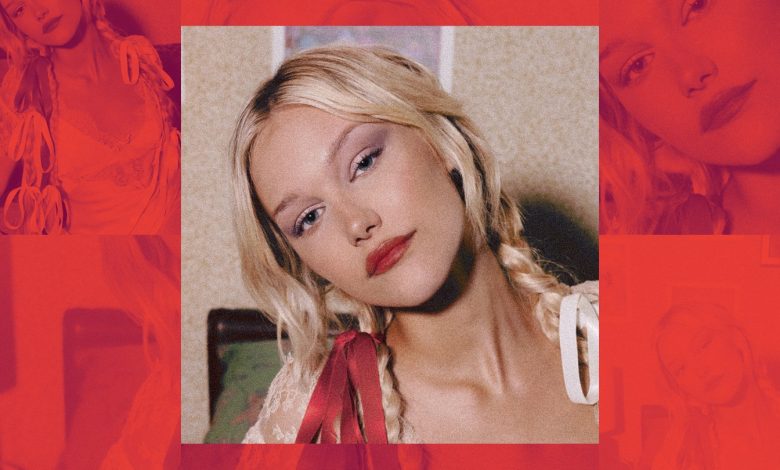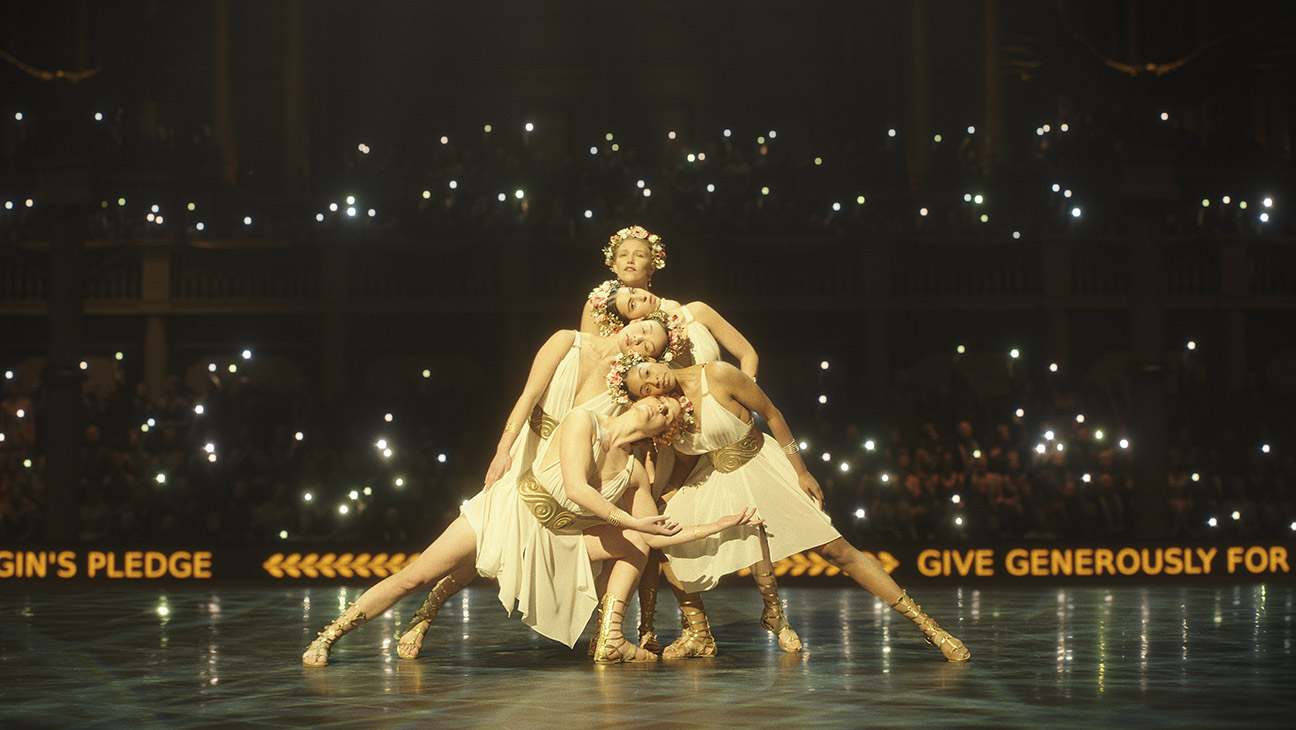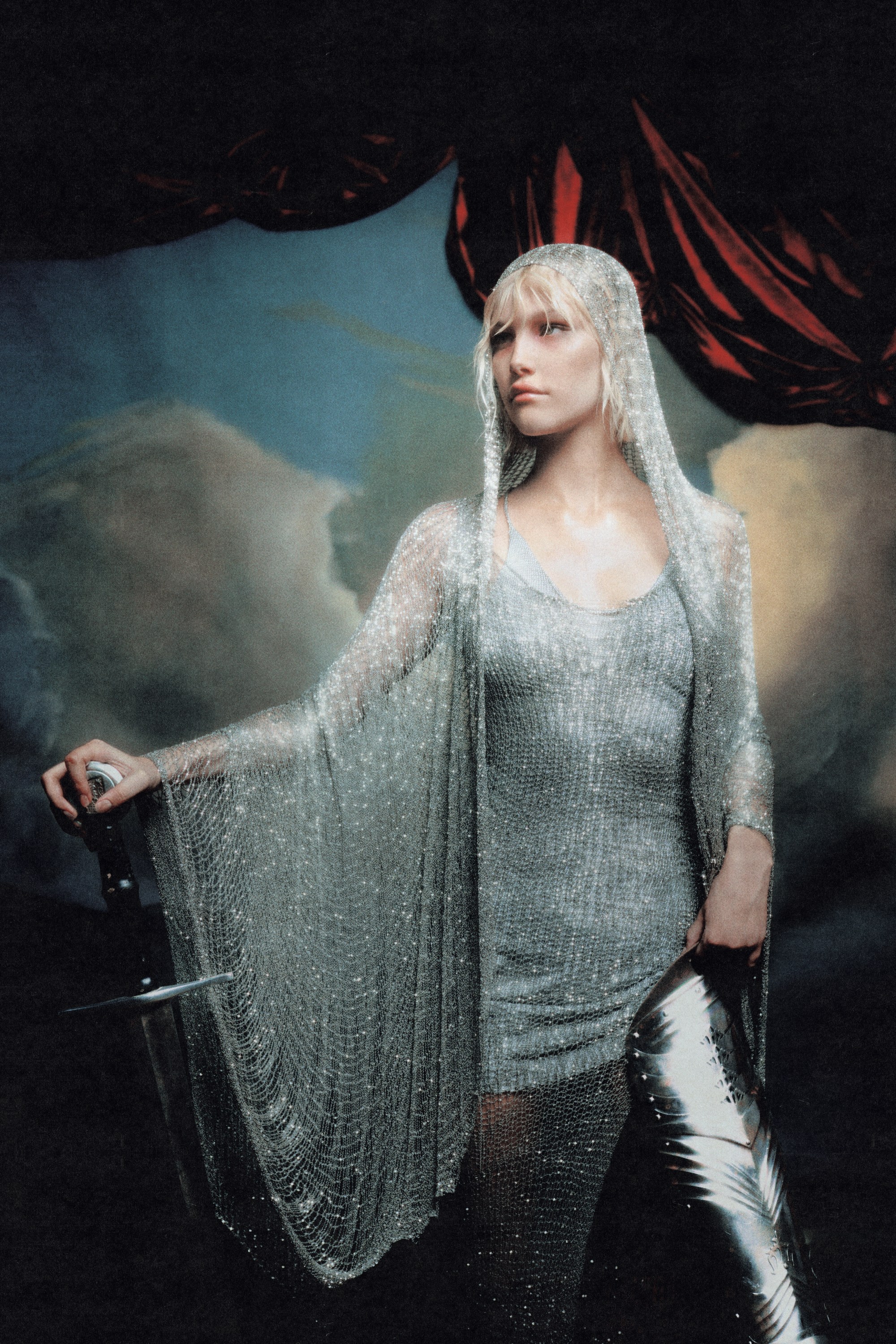Grace VanderWaal on Being a Role Model, Megalopolis and New Music

Grace VanderWaal won over the country’s hearts as a ukulele-wielding 12-year-old on America’s Got Talent. Now, a 20-year-old singer and actress, VanderWaal is preparing for a new album, having released two singles in the last two months, and acting in the upcoming Francis Ford Coppola film Megalopolis.
Just a day before the film is set to hit theaters, VanderWaal spoke with The Hollywood Reporter over Zoom about her experience working on the film, how she has musically evolved and what she’s passionate about these days.
Having made her acting debut in Disney’s Stargirl, the 20-year-old isn’t ruling out more projects in the future but seems to be focusing on her next album. VanderWaal, who spent most of her formative years in the public eye, says her next album is “heavy” but an accurate look at what she’s going through at the moment.
“There isn’t really a resolution to the album because it is a freeze in time of what I’m mentally going through right now,” she tells THR. “I thought that that is impactful and artistic because it is so real, and it is kind of dark, but reality doesn’t have a resolution.”
Below, VanderWaal gets candid about her career, along with her life outside of music and acting.
What was your experience like working on Megalopolis? How were you feeling going into it, and now that it is finally coming out, how are you feeling?
The experience on the set and making my portion of it was really creative, and it was very collaborative. I definitely felt like I was able to make everything my own. It was very free in that aspect. Going into it, I feel like I tend to not process things, so I think I was just like… It was very much not real yet. And maybe that’s a good thing because it doesn’t let me psych myself out. I just kind of carelessly go into things. I’ve seen the movie a few times now, and I’m really excited for it to come out. I’m happy with what I gave to the project and overall, I’m such a small piece of this huge portrait. It just blew me away, and so I’m happy to even be a pinky of the monster.
How familiar were you with Francis Ford Coppola and his work before you signed onto the project? Most of his work came out before you were born, so what was your intro to him?
Even though it was, of course, a little bit before our time, I think that his work has solidified itself in cinematic history, it’s just timeless. His work will thrive for generations and generations and generations. I was very aware, obviously, of not only his movies but his name. That’s almost become a pop culture thing… is Coppola. You can be watching cartoons and they’ll make jokes and you just always know that that is [his] movies. (Laughs) That is [his] movies. I definitely knew exactly who he was, and The Godfather and all of his really iconic work.

Your character in Megalopolis is a young woman caught in the crosshairs of two men going for power plays against one another. What was it about that storyline in particular that drew you into the project?
A lot drew me to Vesta. I don’t really just go on projects to go on projects ever. I thought that a thing that shows his [Coppola] quality in movies is that every single detail could have a spinoff. It’s so detailed and a human of its own. It doesn’t matter. It could be an extra, and it’s like you could be like, oh, this is a very dimensional character. I liked the virginal aspect being translated into modern times. I thought that it was a crystal clear commentary on very conservative pop stars that we have today. And how you might hear in Rome, the Vestal Virgins and think to yourself how oppressive that is and how crazy that is. That history was at one point that way, but it is really very much still that way. I really, really, really liked that. I think that’s a lot of the movie, is just we can look back and think about how much of a catastrophe this was when we’re living in the playbook of it right now. I liked the purity culture aspect very, very much. Obviously, she’s a singer and there’s personal relation there.
Do you see yourself continuing to act in the future?
This was really inspiring for me and made me want to be in more amazing things, but it’s just that I feel like amazing things are rare and require patience. So if an amazing thing came to my desk, I would absolutely join and be a part of it.
Your single that came out in August, “Call it What You Want,” felt like a bridge between the music you were putting out before and your most recent single “What’s Left of Me, which feels like a reintroduction to who you are as an artist. Was that intentional?
It was pretty much exactly that. It was really intentional. When I came to Pulse Records with an album and a world and a concept, and we were just like, “How can I lead people into this in a way that I feel most comfortable and confident in?” I don’t want the project to be shock value, and I don’t want it to be discredited as that. It was really important for us to slowly integrate my new project into the music that people know and what I do.
Have you felt that you’ve been put into a box musically because of where you got your start?
Yes, but only by myself. I think that we end up telling ourselves that people like us for one thing and kind of limiting ourselves probably more than any other outsider would. So, I did feel pressured and boxed in, but very much because of my own spiral of what I thought was going on.
As you’re entering your 20s, are you able to reflect back on your time on America’s Got Talent with a new light?
I’m happy. I’m so happy with everything that went down. America’s Got Talent was nothing. I mean, that’s such a machine that there’s no really… you know what I’m saying? You’re just kind of going through the motions of it, and they make it really easy to do that. I think it’s the readjustment after that because that can be really nice to just go through. I think the hardest thing about the industry is that there is no set game plan or formula or even daily routine to follow. I think a lot of people can feel really lost. You basically have to just make it up. It’s unique to everyone. It’s very strange in that way, but I think everything timely happened for a reason, and I’m happy with where I am and the music.

Have there been any musicians that have either been there for you or mentored you over the years?
No. No, not really. I mean, there’s always maybe brief communication, but no, definitely no close relationship or mentorship at all. It’s so funny. Even my label was like, “Oh, do you have any famous friends or people in the industry and stuff?” And I was like, “No, I barely have friends in my own life.” I definitely don’t have famous friends.
How you would reintroduce the world to Grace today? What do you wish people would know about you as you’re growing into adulthood versus the preconceived notion they might have of who you were at 12 years old on TV?
I like to create and produce what I myself would like to ingest. That’s even why I am confident in what I make because I am a person that also likes to listen to music and see artists do cool things. I like quality. I like thought and art, and that’s kind of all you need to know about me, and if you like those things or crave those things, I might be the person to kind of entertain that in the near future.
What are you doing when you’re not working on music?
I like to watch movies and TV, and I love decorating my house, definitely. That’s a huge hobby of mine, scouting stuff to just crazy-fy my house more. Hanging out with my cat is literally what I do when I’m not working.
What are you passionate about these days?
Just given my development and what I’ve been through, I’ve been exposed to a lot. Especially with the internet, I can see… I mean almost as a living social experiment, I saw how the world took a little girl who liked to sing, and that was a very tough exposure for me that I still battle to this day. I think when something is that strong… there was a lot of disgust there that then turned into fascination because I wanted to break down why that is the way it is, if that, does that make sense? I’m very, very passionate and inspired by patriarchal values and systems historically, and also how they subconsciously still affect every single person today without even knowing it. And how that personally puts a lens on the way that people view me and the way that I view people and other women. I just think it’s an interesting coding that we’re all kind of living by of just these invisible numbers, kind of calculating how we take in things. That is probably the number one thing I’m passionate about and always want to learn more about and could talk about for hours and hours.
How have you been able to balance being a role model to young women as they’re growing up, while you were still doing that yourself?
I never felt pressure to be a role model because I was 12 and 13. Just the inherent pressure to, and not even pressure, I mean for good reason, but obviously protect myself in a sense. I think that just sort of made me a “good role model” because I followed the rules and did whatever, but I think that people don’t realize I wasn’t just a 13-year-old that fell out of the sky. My mom was watching everything I’m doing. She’s there most of the time. I’m not going to be in an interview and be like, “This is what me and my friends secretly do” and my mom is right there. These days, I don’t want to say I don’t want to be a role model, but I definitely am not preparing myself to be that person. I’m still breaking down a lot of feelings for myself. I definitely am not in the place to… I feel like with this album and everything that I’m diving into, it is heavy and there isn’t really a resolution to the album because it is a freeze in time of what I’m mentally going through right now. I thought that that is impactful and artistic because it is so real, and it is kind of dark, but reality doesn’t have a resolution. Sometimes you go through things and there is no grand meaning or lesson that you got from it. You just went through it and now you got to just carry that with you. That’s something that’s hard to grieve and get through. So, when I do, I’ll be happy to tell people, but I just don’t want people to be like, “That spoke to me and ignited these feelings. How do I get through them?” And I’m just going to be like, “I don’t know either. I don’t know either.”
Source: Hollywoodreporter
Related Posts
- Roundball Rocked: With NBA Return Looming, NBC Purges Scripted Roster
- SoundCloud Says It “Has Never Used Artist Content to Train AI Models” After Backlash on Terms of Service Change
- Fox News’ Camryn Kinsey Is “Doing Well” After Fainting on Live TV
- Kerry Washington and Jahleel Kamera in 'Shadow Force.'
Courtesy of Lionsgate
…
- This Alternative Artist Landed a Top-20 Chart Debut With an Album Made Almost Entirely on His Phone





